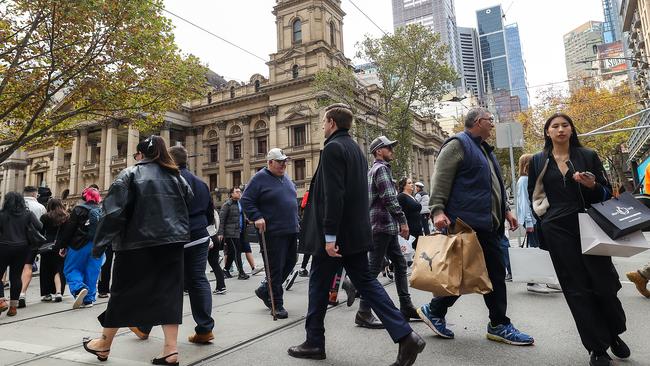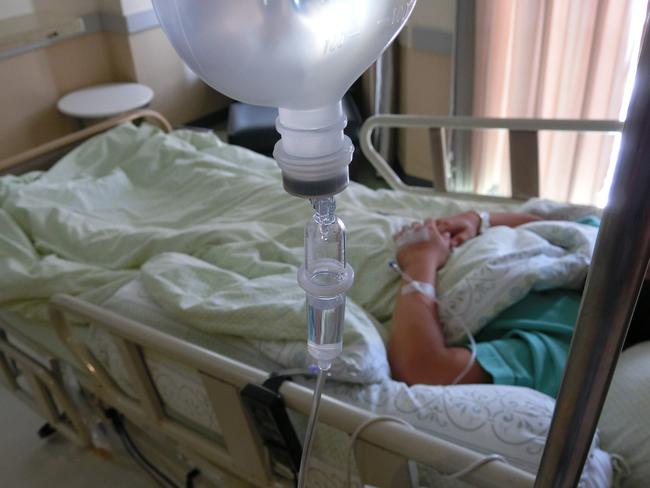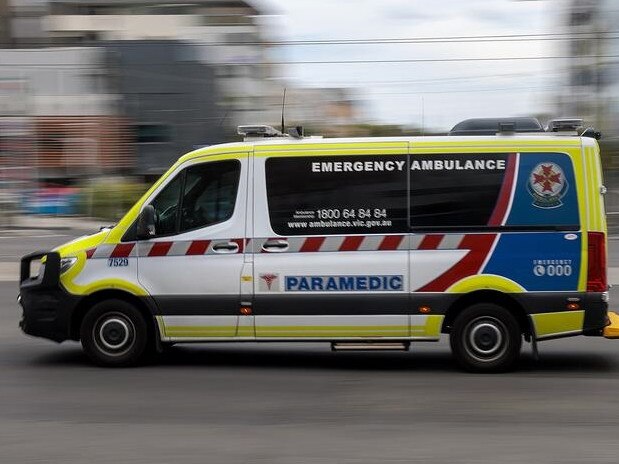Legionnaires’ disease outbreak in Melbourne
Even more cases of Legionnaires’ disease have been confirmed in Melbourne in the last 24 hours — with health officials worried we’re yet to hit our peak.

Victoria
Don't miss out on the headlines from Victoria. Followed categories will be added to My News.
Melbourne’s Legionnaires outbreak has grown “significantly” to 33 confirmed cases — plus another 10 suspected — but officials fear it is yet to peak.
Authorities expect the outbreak – which has jumped from 22 confirmed cases and six suspected on Monday evening – will continue to increase throughout Tuesday.
Most patients have had to be admitted into hospital – including at least six in intensive care – and cases of the sometimes life-threatening pneumonia appear to be concentrated in the northern and western suburbs but still cover a “broad” area.
Chief health officer Dr Clare Looker told a press conference she was “definitely” concerned by the “significant increase” and Melbourne’s north and west were overrepresented.
“I think we will see it grow further today,” she said.
“At the moment it’s really a broad range of suburbs, most in the north and west of Melbourne.”

She said while contact tracers had identified some locations visited by several cases, they were still searching for the outbreak’s source, with a building’s cooling tower the “most likely” possibility.
“At this stage we haven’t been able to identify a single site that has been visited by all the cases,” she said.
“We think most cases are from a single source.”
Legionnaire’s disease is not contagious, and is typically spread by people visiting a specific location and breathing in contaminated water vapour — i.e. mist.
Dr Looker said if a cooling tower — one of the more common causes of a larger outbreak — was infected, “bacteria can travel quite a distance”, meaning people can become sick even if they do not go inside a building, but were nearby.
“These numbers are much greater than the usual three to six we see a week,” she said.
She said more men than women were impacted, all patients were adults and the majority of them were over 50.
When asked if the extra patient load was causing stress on hospitals, she said the system was “coping reasonably well at the moment” and they were working closely with hospitals.
“At this stage, no reports of additional system strain but that’s a conversation we will very much keep alive,” she said.
She said they were testing and disinfecting cooling towers to try and identify a site, and interviewing patients.
Legionnaires’ disease can cause a nasty chest infection — people over 40 years and smokers are at a greater risk — and symptoms such as fever, chills, cough, headache, muscle aches and pains.
The disease is caused by the bacteria legionella, which can be found in wet places and objects such as rivers, lakes, spas, potting mix and systems that use water for cooling or heating, such as cooling towers.
Authorities urged anyone with symptoms to seek urgent medical care, and for operators of cooling towers in Melbourne to ensure their testing, servicing and auditing requirements are all up to date.

They also asked healthcare professionals to have a “high index of suspicion for Legionnaires’ disease”.
Legionnaires’ disease can lead to serious illness, including kidney damage.
The disease, which is a type of pneumonia, can be life-threatening and most patients who contract it are admitted to hospital.
It does not spread from person to person and symptoms typically emerge two to 10 days after exposure and can be treated with antibiotics.


